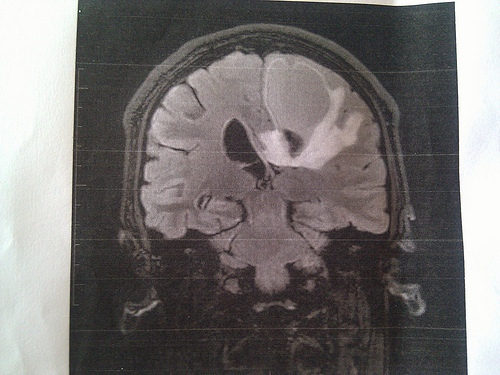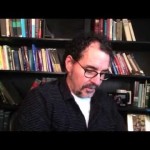We run our website the way we wished the whole internet worked: we provide high quality original content with no ads. We are funded solely by your direct support. Please consider supporting this project.

Why Did God Heal or Not?
In 1996 a 27-year-old man in my church named David was diagnosed with an inoperable brain cancer. The doctors decided to send David to the Mayo Clinic to receive some experimental treatments on the slim hope these might at least prolong his life. The night before David left, I and a dozen other people went over to his house to pray. For over two hours we engaged in fervent warfare prayer on his behalf, revolting in Jesus’s name against the cancer and anything in the spirit realm that might be involved in it.
Two days later I received an elated call from David. The doctors at the Mayo Clinic could not find any trace of cancer!
Of course, the mayo clinic staff insisted that David’s local doctors must have misread his brain scans, but his local doctor said this wasn’t possible. The mystery was never resolved, which was fine with us. We just praised God that he was set free from a life-threatening infirmity that ultimately is traceable back to Satan’s oppressive regime.
But we must be honest. As impressive as this event was, it’s possible nothing supernatural occurred. Despite their insistence to the contrary, David’s doctors may have misread his brain scans, and it’s possible David’s cancer went into “spontaneous remission.” But these seem very unlikely. And since I have good reason for believing Jesus is the son of God and that his followers are supposed to be able to affect things through the power of prayer, I feel justified calling David’s healing miracle.
Now, in the interest of full disclosure, and to illustrate how arbitrary life sometimes this, I’m compelled to add the sad fact that three years after his miraculous healing, David’s brain cancer returned. And this time he wasn’t healed.
I admit that this is theologically disturbing. But I don’t think this invalidates the miracle. For all we know, Lazarus may have died three years after Jesus raised him from the dead, perhaps from the very disease that killed him the first time (John 11:1–46). All healings this side of heaven are temporary signs of the coming age when all forms of infirmity will be permanently overcome. Until the kingdom comes in its fullness, we will all eventually die. The very last enemy that will be overcome is death (1 Cor 15). So David’s death doesn’t undermine the genuineness of the healing.
But it does illustrate how mysterious and seemingly arbitrary life is. Why was healing prayer effective in one instance but not in another, when we were revolting against the same illness in the same person? It’s impossible to say. Yet, as I said in yesterday’s post, it’s important we understand why we can’t understand this. It’s not because God’s will or character is so mysterious. It’s rather because we live in an unfathomably complex creation.
We don’t need to blame the arbitrariness of life on God. Nor do we need to try to explain away this arbitrariness by claiming some people have sufficient faith while others don’t. We simply need to respect the impenetrable ambiguity of an unfathomably complex creation and confess, as finite human beings, that “we don’t know.”
Image by mathrock via Flickr
Category: Q&A
Tags: Faith, healing, Sickness, Spiritual Warfare, Warfare Worldview
Topics: Faith & Doubt, The Problem of Evil
Related Reading

Forgiving (and Loving!) Your Only Son’s Killer
StoryCorps is an organization whose mission is to provide Americans of all backgrounds and beliefs with the opportunity to record, share, and preserve the stories of their lives. We came across this extraordinary story on The Daily Beast and had to share it. Mary Johnson’s only son, 20 year old Laramiun Byrd, was murdered during a…

Changing Beliefs
Stephen Mattson is a follower of ReKnew and a member of Woodland Hills Church who posted a piece on Sojourners titled Christians: It’s NOT a Sin to Change Your Beliefs. He points out that doubt and questions are a natural and needed part of any Christian’s life, and our community needs to change the ways we…

Lord Willing?
Lord Willing? Wrestling with God’s Role in My Child’s Death, by Jessica Kelley In November 2012, I received one of the most touching emails I have ever received. A young mother named Jessica Kelley explained to me that her four-year-old son had been diagnosed with an aggressive brain tumor. Despite his parents’ and doctors’ valiant…

Is There Room for Doubt in Faith?
Many Christians today assume that faith is the antithesis of doubt. In this view, a person’s faith is thought to be strong to the extent that they don’t question their beliefs or struggle with God in whom they believe. As widespread as this view is, I believe it is unbiblical and profoundly unhelpful. My experience…

Benefit of the Doubt: Sneak Peek
We’ll be leaking little tidbits from Greg’s soon-to-be-released book Benefit of the Doubt from today until the book release. We’re really excited about the potential of this book to impact the lives of those who have limped along with the assumption that doubts and questions disqualify them as “faithful”. Here’s today’s snippet: The truth is,…

Drum Roll Please: Greg’s Final Critique of Bart Ehrman’s Article
This is the ninth and final of several videos Greg put together to refute Bart Ehrman’s claims published in the article What Do We Really Know About Jesus? Thanks for hanging in there for this last one. I know it was a long wait, but the holidays got inordinately busy for Greg. In this segment, Greg talks…
